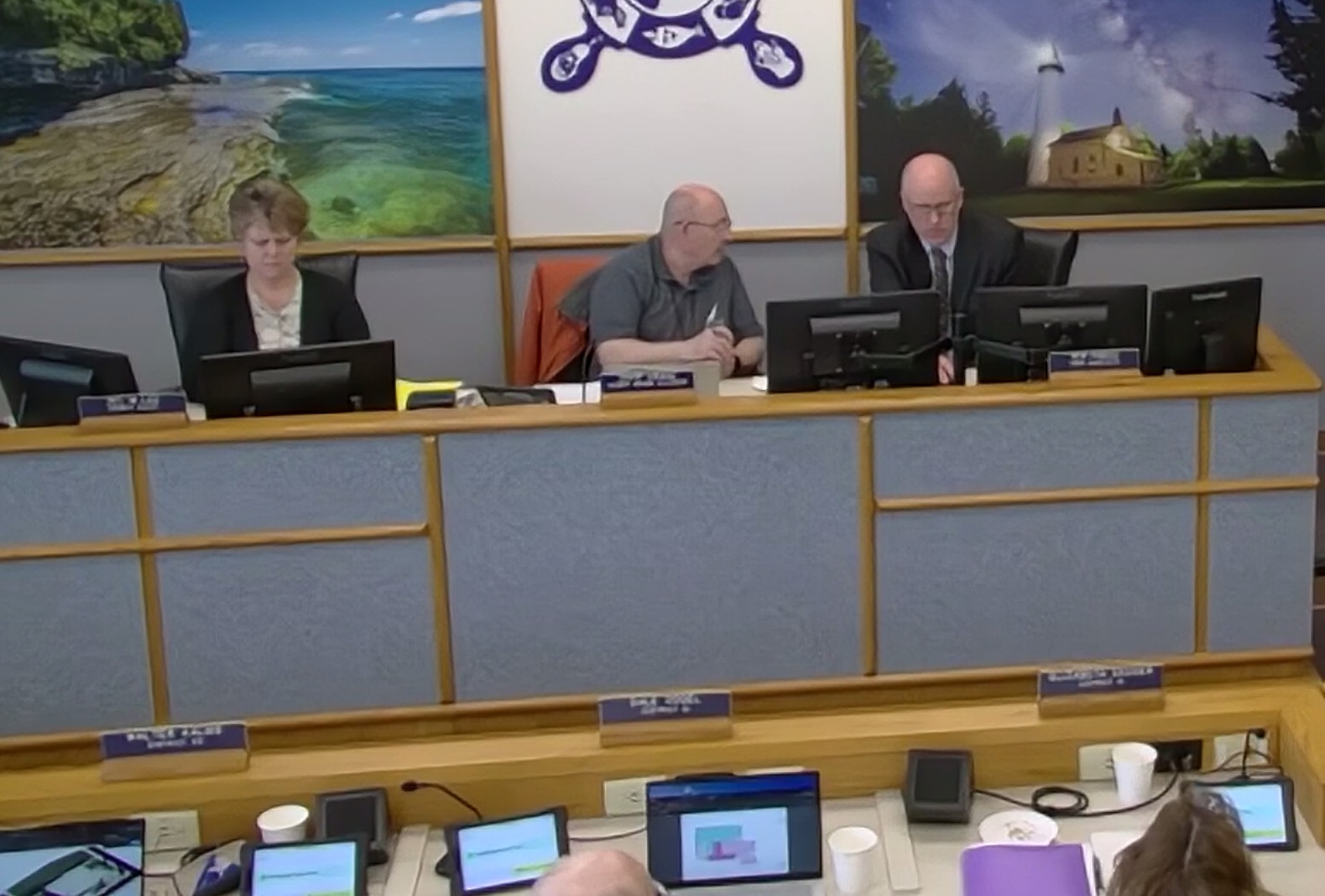The Door County Board of Supervisors on Tuesday approved a contract for a new, four-year voluntary groundwater testing program that will test wells for what the county refers to as “emerging contaminants,” on which little to no data exists.
Up until now, the county’s well-testing efforts mostly have focused on bacteria with some focus on pesticides, county conservationist Greg Coultherst told supervisors. The new program will test for groups of chemicals known as PFAS and PAHs, Coultherst said.
PFAS are a potentially harmful group of chemicals found in nonstick cookware, water-resistant fabric, some cleaning and personal care products, and firefighting foam. PFAS is an abbreviation for perfluoroalkyl and polyfluoroalkyl substances.
PAHs are another potentially harmful group of chemicals found in smoke or ash, as well as products such as mothballs, blacktop, creosote wood preservatives and some skin creams and anti-dandruff shampoos. PAHs is an abbreviation for polycyclic aromatic hydrocarbons.
According to the county’s request for proposals (page 47 within the link) for the program, the program also will test for microplastics, personal care products and pharmaceuticals, as well as bacteria, nitrate, chloride, pesticides and herbicides.
The program will target 120 wells in the first year, Coultherst said. It runs from 2023 to 2026. The request for proposals document states the program is intended to identify areas of concern.
“Ideally, the first year of the project will involve a broad distribution with subsequent years focusing in greater detail on areas of concern identified in the first year,” the request for proposals reads.
The county is contracting with Massachusetts-based GZA GeoEnvironmental Inc. for the program. The company has an office in Brookfield. The county will pay the company $357,700 in total, using funds from the county’s allocation of federal funding under the American Rescue Plan, a 2021 federal Covid relief law.
Coultherst said GZA’s bid had a perfect score under the county’s rubric. The county received seven bids ranging from $268,000 to more than $600,000, he said.
The County Board last year allocated $800,000 of its more than $5.3 million total in American Rescue Plan funding to environmental projects.
Some county supervisors raised questions about the program because the cost of remediating contaminants could fall on the landowner.
Supervisor Alexis Heim Peter, who represents parts of the City of Sturgeon Bay, said she was concerned about landowners having to pay for the cost of remediation or bottled water if contaminants are found.
“Respectfully, I don’t disagree with people knowing what’s in their water,” she said. “I’m having a hard time with the county’s role in this particularly.”
James Drought, a GZA representative who attended the meeting, said the company would share results with the landowner if any contaminants are found, then possibly re-test to confirm the results. The company then would discuss options with the landowner, including remediation and getting bottled water, he said.
Drought said part of the company’s work is to identify the source of any contaminants it finds. If it can identify a source, such as a private company, that source could become responsible for the cost of remediation, Drought said.
Supervisor Vinni Chomeau, who represents parts of both the Town of Gibraltar and the Village of Ephraim, said she was concerned about the possibility of landowners not sharing their results with the county, meaning the county could be spending money on the testing and not getting any data from it.
Drought said the company will do public outreach about the program, including discussing with the public what will be done with the testing data. He and Coultherst said it’s possible the testing data could be made available online on a map that shows test results without revealing landowners’ specific addresses.
Coultherst and some supervisors argued that it’s better for landowners to know if the contaminants are there, regardless.
“To put our heads in the sand right now is just wrong,” Coultherst said.
Supervisors David Englebert, who represents the Town of Union and part of the Town of Brussels, and Todd Thayse, who represents the Village of Forestville and parts of the towns of Brussels and Forestville, said they would want to know if contaminants were in their wells.
“Being a person who has his own private well, I’ve drank from it all my life, my ancestors before me, I think it’s important to recognize that this pollution can be coming from off-site,” Englebert said.
Thayse agreed.
“I appreciate all the knowledge and comments (of other supervisors),” Thayse said. “Ultimately I’m with David – if it’s my well, I think I’d rather know.”
The County Board approved the contract in a 20-1 vote. Heim Peter voted no.

